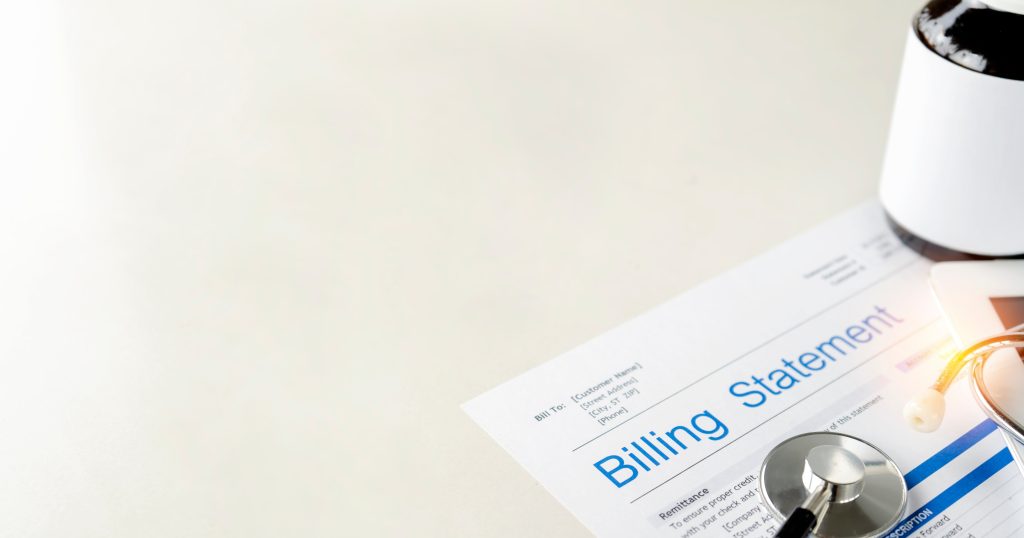Healthcare billing can be difficult at times. Most people are aware of health insurance and medical care, but they may not realise what their responsibilities as patients are. We’ll simplify patient responsibility management and offer some advice on what patients should do with regard to medical expenses.

Know Your Insurance Plan
Being well-informed about your health insurance plan is the first step towards comprehending your patient’s responsibilities. The amount of coverage, deductibles, copayments, and out-of-pocket maximums associated with each plan varies. Make sure you have a copy of your policy, and spend some time reading and comprehending it. Please don’t hesitate to ask questions or seek clarification from the HR department of your business or insurance provider. Here are some actions that you ought to take:
Verify Coverage
Make sure your insurance plan covers any medical operation or service before committing to it. To find out more about in-network doctors, approved services, and any pre-authorization needs, get in touch with your insurance company. You can avoid unforeseen out-of-pocket costs by taking this action.
Understand Deductibles
The amount you have to fork over before your insurance starts to pay is called a deductible. It’s important to know your deductible because it affects your patient’s obligation. There are plans with low deductibles and plans with high deductibles. Ensure that you are aware of your deductible amount and maintain a record of the amount you have paid over the course of the year.
Be Aware of Copayments and Coinsurance
Coinsurance is a proportion of the cost that you are responsible for, whereas copayments are set amounts you pay for particular services or drugs. These expenses can mount up, so it’s critical to comprehend how your insurance policy handles them. When you receive medical care, be ready to pay your share of the copayment and coinsurance.
Request Detailed Bills
It’s crucial to have an itemized bill after receiving medical care. An explanation of the services you received, and their related expenses is given in this document. Make sure everything is accurate by thoroughly reviewing it and looking for any services that might be billed erroneously. Get in touch with the billing department of your healthcare provider if you have any queries or concerns.
Communicate with Your Healthcare Provider
Don’t be afraid to let your healthcare practitioner know if you can’t afford your patient obligation. To aid patients in managing their expenditures, several healthcare facilities provide payment plans or financial assistance programmers. Early intervention is preferable to waiting until the problem becomes expensive.
Keep Records
All of your medical bills, insurance papers, and payment receipts should be kept in an orderly file. This will assist you in monitoring your medical costs, track your progress towards reaching your deductible, and make sure that no services are being overcharged.
Plan for the Unexpected
Emergencies in medicine might occur because life is unpredictable. Consider creating an emergency fund or purchasing extra insurance, such as a health savings account (HSA) or flexible spending account (FSA), to protect yourself against unforeseen medical expenses.
Tips for Managing Patient Responsibility

Read and Understand Your Insurance Policy:
Familiarize yourself with the terms and conditions of your health insurance plan. Pay attention to details such as deductibles, copayments, coinsurance, and coverage limitations.
Ask Questions:
Never be afraid to inquire about the price of services and any possible out-of-pocket costs from your healthcare practitioner. For surgeries or treatments, ask for cost estimates so you can budget.
Plan Ahead:
Set aside money for copayments and deductibles when creating a budget for medical costs. If at all possible, open a healthcare savings account to help with unforeseen expenses.
Negotiate When Necessary:
Think about talking to the healthcare professional about your financial status if you’re experiencing difficulties. To assist you in controlling the costs, some might be open to working up payment schedules or providing discounts.
Stay In-Network:
Whenever possible, seek healthcare professionals and facilities that are in-network with your insurance plan. Out-of-network services generally result in higher expenses.
Keep Records:
Maintain detailed records of your medical expenses, payments, and insurance communications. These documents will be important in the event that you have billing disputes as well as for tax concerns.
Role of Medical Billing Companies in Handling Patient Responsibility

Patient responsibility refers to the financial obligations that patients have when it comes to their healthcare, such as copays, deductibles, and coinsurance. We’ll go over how medical billing firms facilitate patient accountability and expedite the process of healthcare billing.
Checking Insurance Coverage:
First, medical billing businesses make sure the patient’s insurance is up to date and valid. In order to comprehend the patient’s financial responsibilities, they also obtain information regarding their deductibles, copays, and coinsurance.
Accurate Billing and Coding:
These businesses are in charge of accurately billing and coding medical services. This keeps patients from paying excessive fees and guarantees efficient processing of insurance claims. Coding errors might lead to disagreements and delays in payment.
Payment Plans and Negotiations:
Medical billing businesses help patients arrange to pay for the services they receive out of pocket. In order to make payments more reasonable for patients who are struggling financially, they may also bargain with patients on behalf of healthcare providers.
Follow-Up:
They play a crucial role in reminding patients about unpaid bills. They send notices and work on resolving any outstanding balances. This helps healthcare providers maintain their finances and ensures patients understand what they owe.
Staying Compliant:
These organizations stay current with the newest regulations and standards in the rapidly evolving healthcare industry. By ensuring that billing complies with legal requirements, they lower the possibility of legal issues for healthcare providers.
Final Thoughts:
Medical billing companies are crucial to the healthcare industry because they effectively manage patient responsibility. They help patients understand what they need to pay, ensure that bills are accurate, and help with payment plans. By doing these tasks, these companies make billing easier and more efficient, which is good for both patients and healthcare providers. Patient responsibility in medical billing may seem complicated, but with some knowledge and thoughtful preparation, you can confidently manage it. It’s important to grasp your insurance plan, confirm your coverage, and handle your healthcare finances wisely. These steps ensure you can get the care you need without overspending. By applying these tips, you can control your healthcare costs and make the billing process less intimidating.